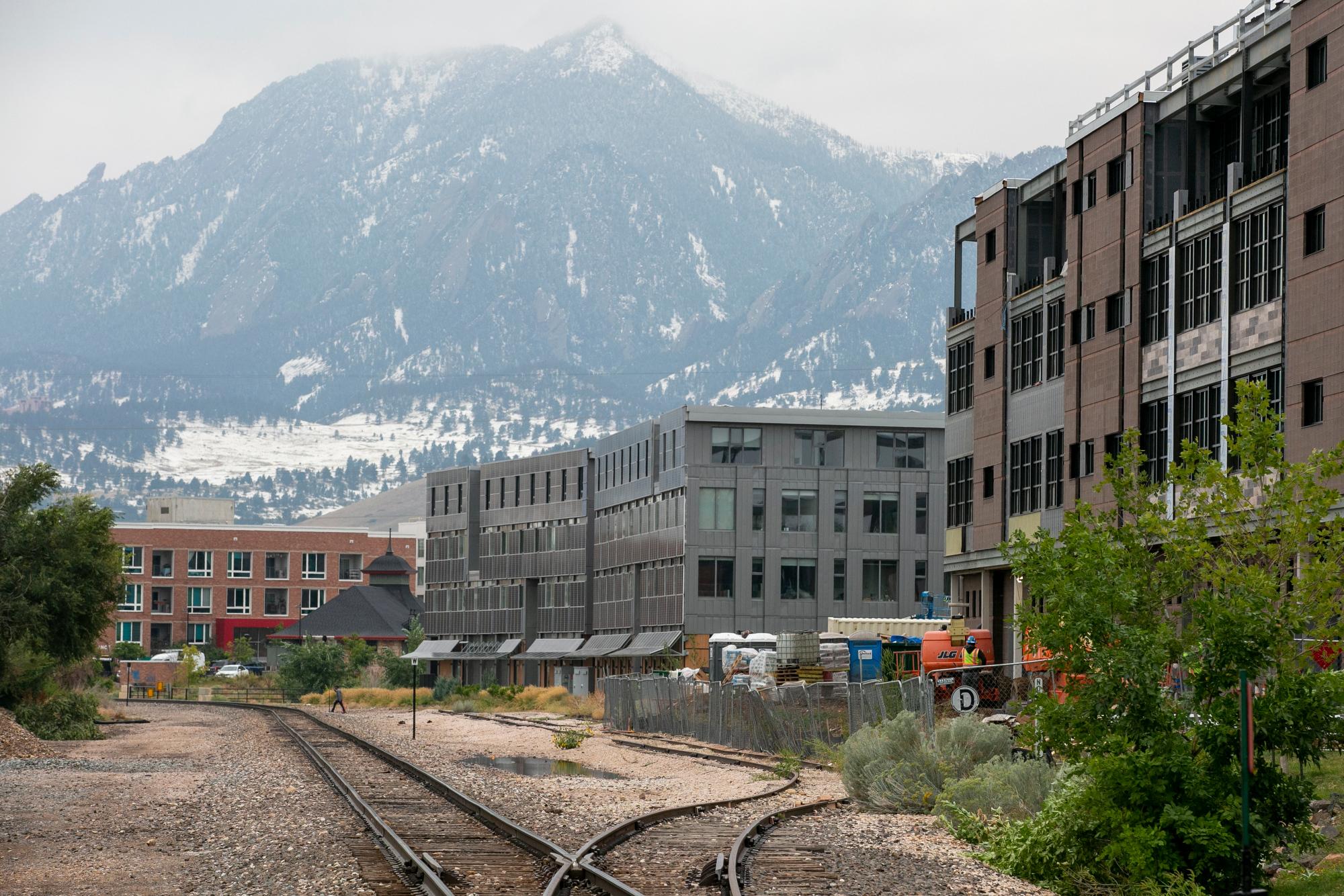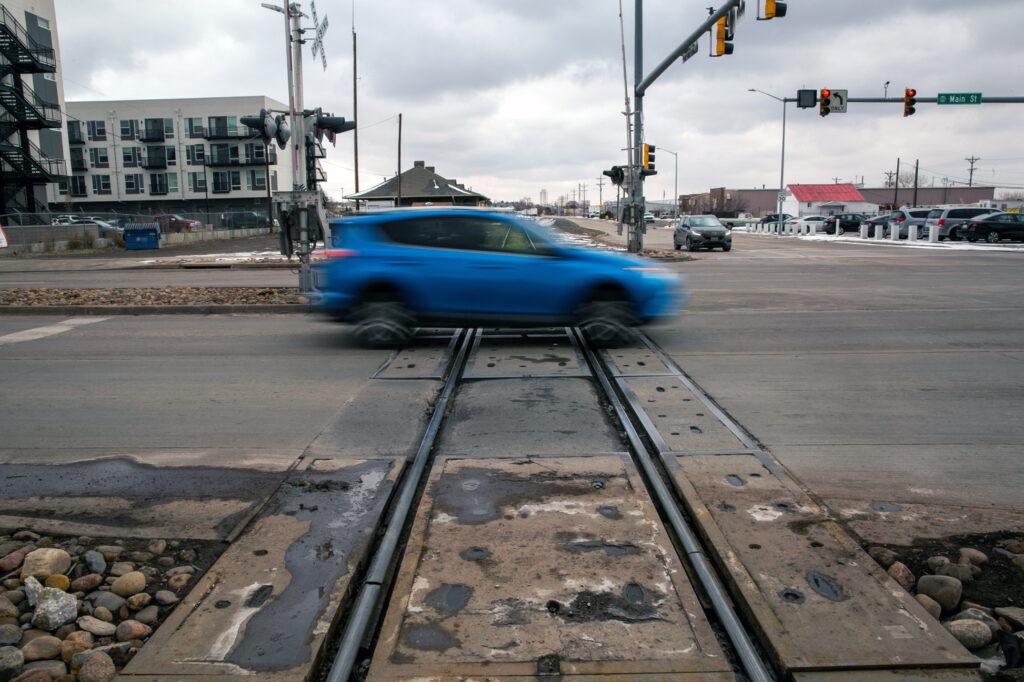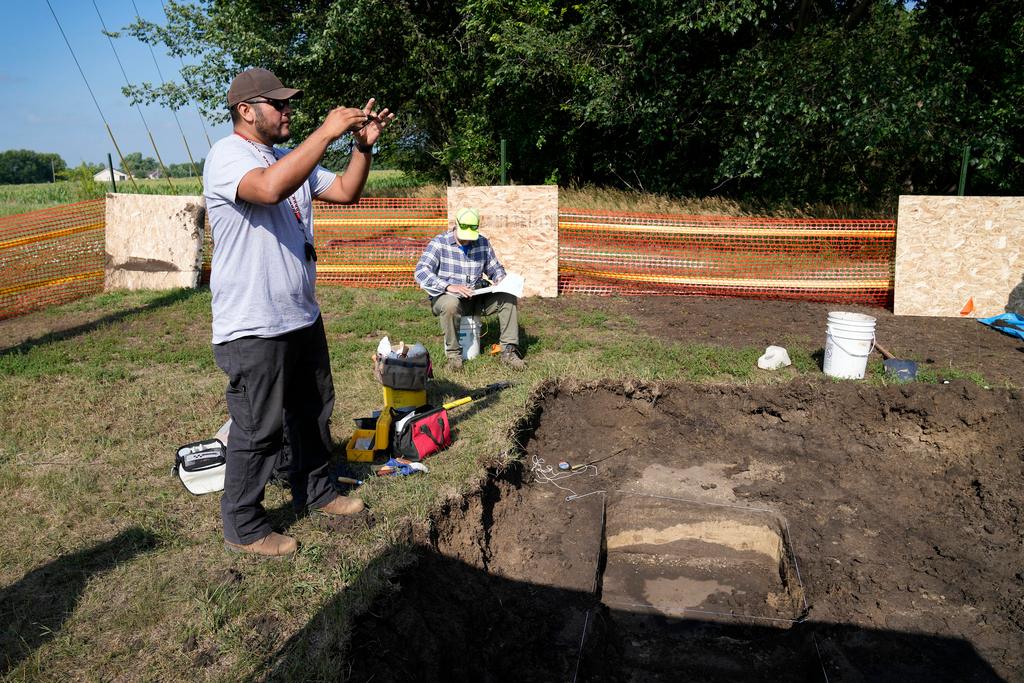
The Regional Transportation District will restart planning of its long-delayed commuter rail line between Denver, Boulder and Longmont, with a focus on a bare-bones version that could get rolling sooner.
The agency’s board of directors on Tuesday signaled its support for new environmental and engineering work that will likely take 18 to 24 months and cost $5 million to $8 million. The board is expected to give its formal approval this summer. The planning work is meant to capitalize on the possibility that RTD could receive federal funding through President Joe Biden’s recent infrastructure proposal.
"The time for talk is over. The time for action is now,” said board member Doug Tisdale, who represents the southern suburbs. “We have a window of funding that is available to us now. A window that could very easily close in November 2022.”
The B Line was part of the 2004 FasTracks expansion plan that raised sales taxes by four cents on a $10 purchase. RTD has since opened six new rail lines and a new express bus line between Boulder and Denver as part of that project. But costs for the B Line have increased from $461 million to more than $1.5 billion, and that's pushed completion to at least the 2040s. Only a six-mile stub to Westminster exists so far.
The new planning work will be aimed at building a stripped down service plan — three trains to Denver in the morning, and three to Boulder and Longmont in the evening — meant to cut costs. RTD will pay for the work with a savings account its board created a decade ago for future FasTracks projects. That account now has more than $120 million in it.
The planning work would firm up construction and operating costs, and, if RTD can secure the federal funds, a timeline for opening. RTD CEO and General Manager Debra Johnson said Tuesday she didn’t have enough information to estimate what that might look like.
Earlier this year, she drew the ire of Gov. Jared Polis, a Boulder resident, after she questioned whether spending money on the line was a good investment. Prior to the pandemic, RTD's Flatiron Flyer rapid bus line carried thousands of passengers between Boulder and Denver every day. Very early estimates for the bare-bones B Line estimate costs of $700 million and ridership of just 800 people a day.
Some board members pointed out that RTD still has other incomplete FasTracks projects, including light rail extensions near downtown Denver and in the northern and southern suburbs. But Vince Buzek, who represents Westminster and other northern suburbs, said the B Line constitutes the lion’s share of the unfinished track miles.

"This is 35 miles of unfinished rail. They have waited long enough,” he said of taxpayers in the northwest region. “They have been promised this for long enough. This is the one that needs to happen next."
Biden’s proposal includes $80 billion for Amtrak, which has said repeatedly that it wants to help the state passenger rail commission establish rail service along the Front Range. If that happens, and if service runs on Burlington Northern Sante Fe tracks through Boulder and Longmont, RTD could potentially gain access to those tracks for much less than it has anticipated.
Rep. Joe Neguse, who represents Boulder in Congress, said in a Monday press call organized by Climate Power that he will advocate for federal money for several projects in his district — including the Front Range rail line and RTD’s B Line.
“We certainly will continue our advocacy on both fronts,” Neguse said.
Lynn Guissinger, who represents Boulder on the RTD board, said the planning work would show the federal and state governments that the transit agency is serious.
“This is the moment. This is an opportunity. I don’t know how long of a shot it is, but it is an opportunity,” she said.









